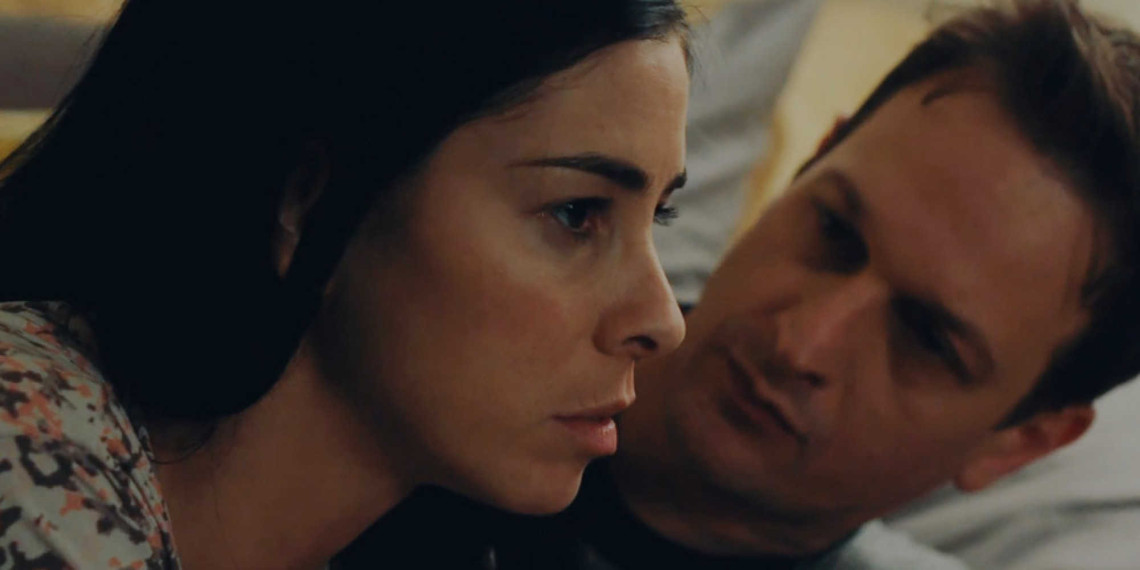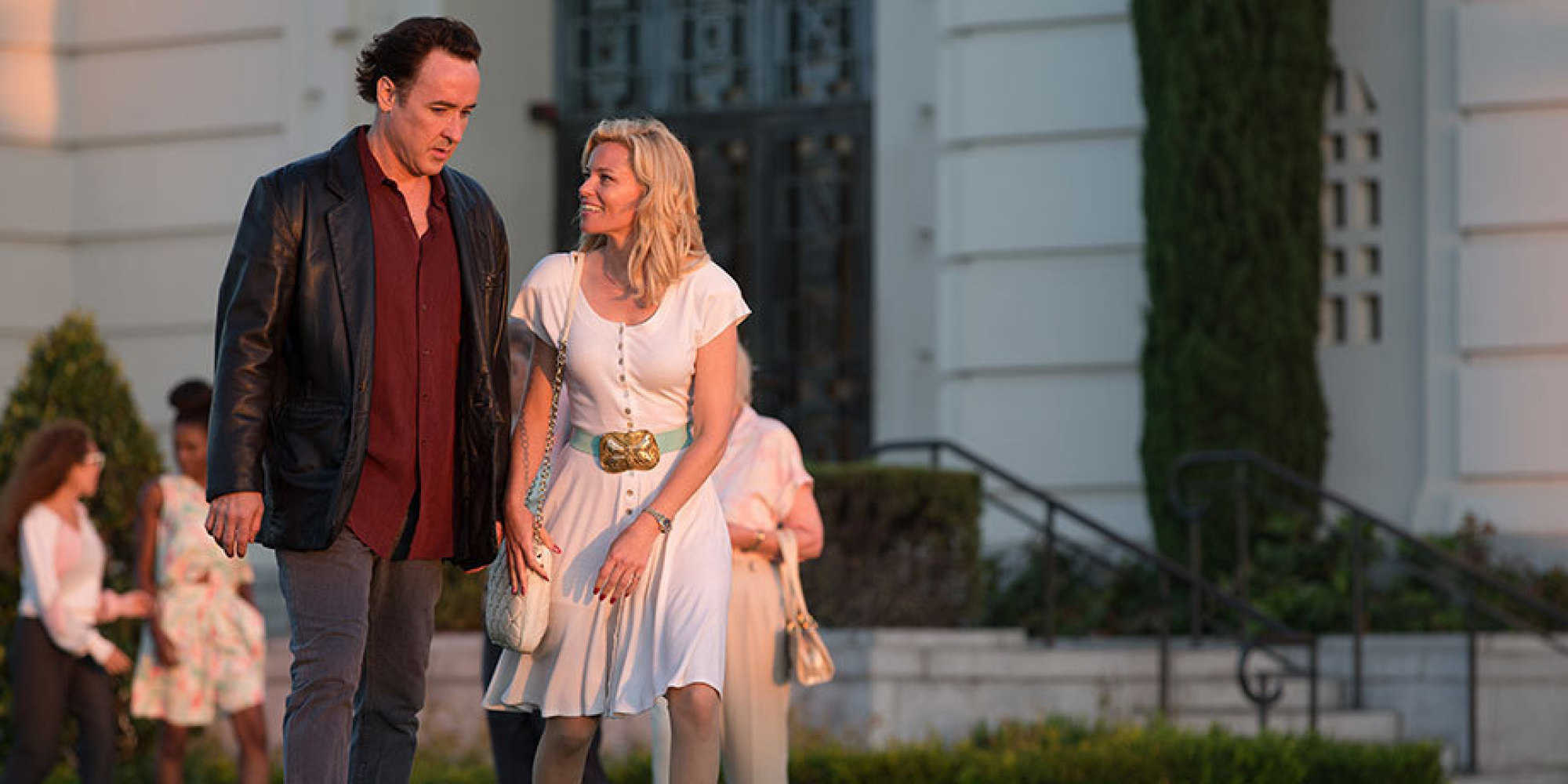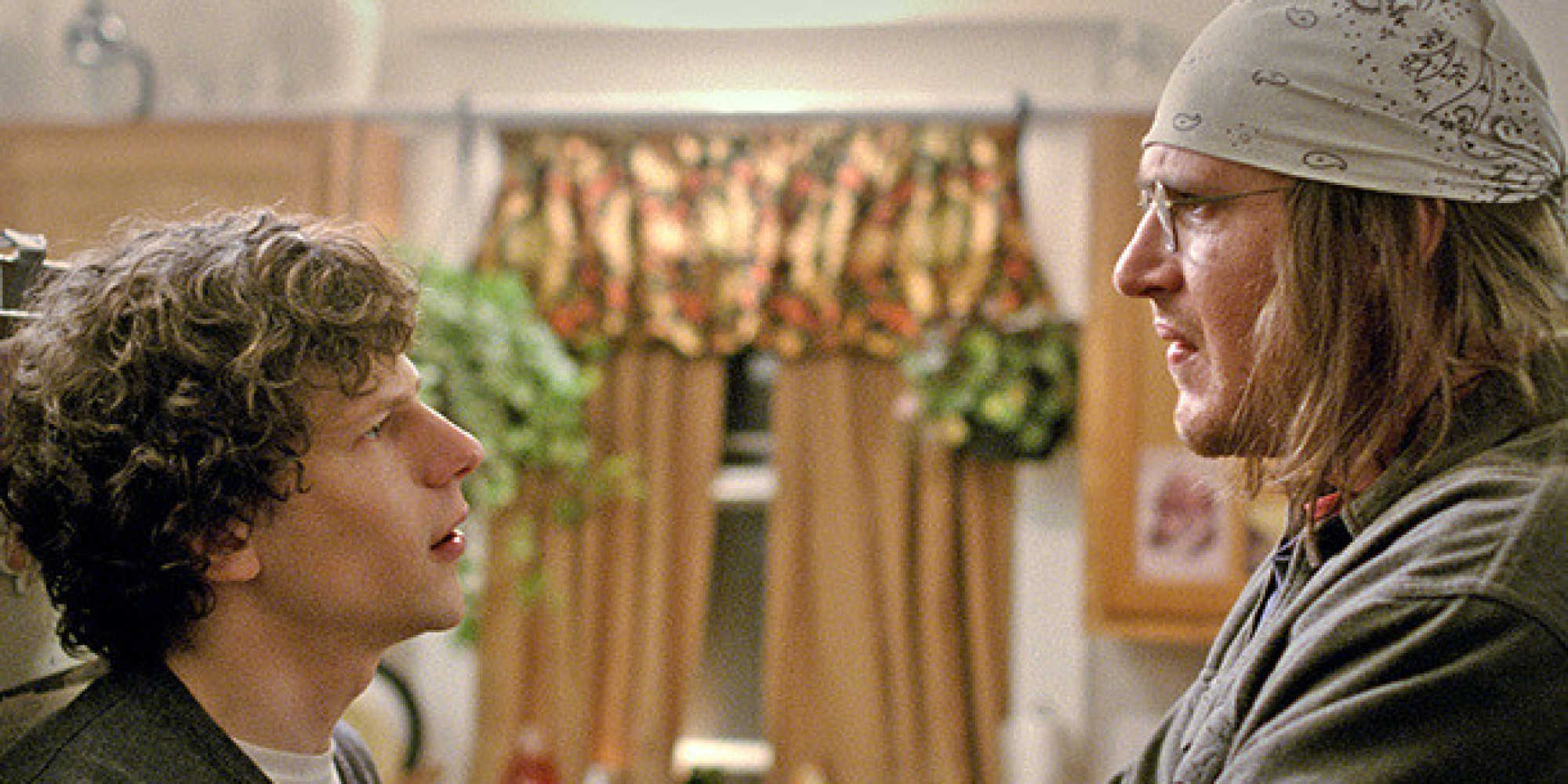If we ask the movies of 2015 to tell us what a person dealing with mental health issues looks like, who looks back at us? It could be Sarah Silverman’s character in I Smile Back, a suburban housewife afflicted with addiction and possible manic depression. Or it could Tobey Maguire as Bobby Fischer in Pawn Sacrifice, the genius plagued by voices, occupying the intersection of psychosis and transcendence. But I Smile Back, staunchly suburban, its crisis beyond the realm of cameras, is almost a counternarrative compared to the year’s steady trickle of the type of story exemplified by yet another biopic of Bobby Fischer. From Amy Winehouse and Kurt Cobain falling to pieces in the documentaries Amy and Montage of Heck, to actors portraying the self-annihilating genius of Brian Wilson and David Foster Wallace in Love and Mercy and The End of the Tour, the films of 2015 equivocate mental health issues with genius. They take monumental works of modern music and literature, and make them metaphors for depression and drug addiction, anxiety, and possible schizophrenia. Cinematic portrayals of mental health in cinemas this year has often veered again and again toward the famous but afflicted genius, and provided far less of a focused portrayal of the day-to-day experiences of mental health disability.
None of these films are mainstream hits. The highest-grossing among them is Love and Mercy, currently the 89th highest grosser of the year with a respectable $12.5 million theatrical haul. The only hope a film about mental illness tends to have in reaching a larger audience is an awards-season prestige booking, which worked as well for Silver Linings Playbook in 2012 as it did for A Beautiful Mind more than a decade ago. If it were to follow the source material, the final Hunger Games film could illustrate its main character detoxing from drug addiction, but such a fidelity to darkness seems unlikely. It can’t be claimed that these tiny, little-seen films are casting some distortion upon the dome of the sky or filling “the masses” with any more narrative misinformation than, say, right-wing terrorism fables disguised as action movies like No Escape, American Sniper, or whatever the hell that Michael Bay Benghazi movie is going to be. Barring a sudden wave of film populism, it’s unlikely that stories about bipolar disorder are going to reverse any current blockbuster trends. But what remains is a running narrative awaiting anyone who wants to see mental illness told through films, and the question of why this story endures with such consistency.
There is the oft-repeated quote by Susan Sontag attributing to all people the idea of dual citizenship in the “kingdom of the well and the kingdom of the sick.” But for mental health, depression, anxiety, and addiction, the metaphor must be adjusted. These conditions, these afflictions, these palaces relocate one forever to a residence on the borderlands. To suffer even a relatively minor mental health crisis, be it the sudden realization of debilitating social anxiety or a period of intense depression, is to look across an invisible border into a country of potential disaster. It is not quite to feel the impulse to commit suicide or reignite the addiction or enable the relationship, but to realize that this kingdom of sickness lies just within view. Your passport is stamped by nothing but the wrong day, the wrong week. If we accept even the most conservative of statistics from the National Alliance on Mental Illness, around 1 in 5 U.S. adults suffer from some form of mental health issue, a category that includes bipolar disorder, depression, schizophrenia, eating disorders, and anxiety, among other debilitating symptoms. That number totals around 40 million people, slightly larger than the population of California, the U.S.’ most populous state (keeping in mind that in this territory of the mentally ill, we have not yet even included any children).
And so the films of 2015 would tell us things about this dual citizen upon the borderlands. These stories are overwhelmingly male and almost exclusively white. And while mental health issues occur with relative stability across racial and ethnic lines, when adjusted for socioeconomic status, low-income individuals face higher hurdles and higher risks of their existing issues transitioning into crisis. And while addiction narratives like Nathan Silver’s Heaven Knows What reached for street-level mimesis, most of the stories told on screen this year about mental health issues took place in the recreated mansions of famous luminaries, or documented in the home movies of dead rock stars. With LGBTQ individuals in the U.S. twice as likely to experience a mental health condition, the story told on film remains overwhelmingly heteronormative. I Smile Back’s upper-middle-class environs might still be more opulent than the surroundings of most individuals experiencing bipolar disorder, but they’re all but neorealist compared to John Cusack as renowned musician Brian Wilson in Love and Mercy, wasting away in his seaside mansion.
Cusack’s Wilson is all facial twitches, stuttering and capital A acting. Paul Dano, playing the same character as a young man, is slightly more subdued, but stares off into space and mumbles to himself and obsesses over details in ways that tell the audience, “There is something wrong here.” These performances join a long tradition of actors overdoing it for the sake of their characters’ mental disabilities. They descend from the potential cinematic patient zero of mental health issues, 1906’s Dream of a Rarebit Fiend, in which a typically vaudevillian clown mimes his way through exaggerated heroin hallucinations, and are kin to the madhouses of 1948’s The Snake Pit, trash masterpiece Shock Corridor, One Flew Over the Cuckoo’s Nest, 12 Monkeys, Girl, Interrupted, and countless other depictions of institutionalization and inpatient treatment. Cusack’s drooling, over-medicated Wilson exists in a state of near-constant, acute crisis. The tension of the film is the inevitability of total self-destruction.
This remains the impulse that leads actors into fits of histrionics, and why not follow it? It led many of the actors in the films listed above to awards-season accolades. Directors assume that audiences need to know that something is wrong, and what better way to say it than by (to paraphrase Tropic Thunder) directing their performers to go full crazy person. And Brian Wilson had a mental health crisis existed, but was falsely diagnosed as a paranoid schizophrenic by an abusive doctor and over-medicated almost to the point of his own death. If we were to have met him in the depths of his abuse, we would have probably known something was wrong ourselves. Tobey Maguire knows that the world watched Bobby Fischer fall apart onstage, so he performs Fischer with lots of strained eye squeezing and manic yelling. These performances serve a kind of truth.
But portrayals like Cusack’s and Maguire’s tell us that mental illness resembles a monster slowly crowning form our brainpan into public visibility. With occasional subdued exceptions (most notably the almost miraculous normalizing of multigenerational mental issues in Silver Linings Playbook), onscreen mental sickness is played to the nosebleed seats. These type of performances insinuate that depression, anxiety, even drug addiction, is not just visible, but broadcast through mannerism and speech. And the tricky part is, this isn’t wrong. It tends to take tragedy or genius to make mental health a public process. And when films are used to tell stories, they tend towards either the street-kid heroin addicts of Heaven Knows What or the millionaire rock-star heroin addicts of Montage of Heck. What gets missed is the invisible middle, a middle in which millions live with these issues every day, passing for “normal”, externalizing nothing, going home, buying groceries, translating their experience through the silent disability constricting their own foundations.
Because of the award season’s tendency to reward the “most acting” over the best, it’s unlikely that the most effective depiction of day-to-day mental health management will show up on many ballots this winter. In The End of the Tour, Jason Segel plays some version of the real-life David Foster Wallace, the famously brilliant author who committed suicide in 2008, following a long battle with depression. For all of the equivocation of genius and the building of personal mythology at play in The End of the Tour, the triumph of Segel’s Wallace lies in his decision to play him as a normal person. He plays a man whose fame has become almost mystical post-mortem as almost pathologically normal. It’s the adapted screenplay by Donald Margulies that reminds us that the real life Wallace waged constant battle against his being anything but a “regular guy”, indulging in junk food, television, and action movies. But it’s Segel who makes this monolithic figure into that “guy”. The performance is special largely for what the actor isn’t doing. Unlike in Love and Mercy, there are no facial tics, no bouts of eccentric movement. Its Segel’s eyes that do all the indicating, like a dog forced into endless corners by the neophyte journalist played by Jesse Eisenberg. The film’s Wallace is alive in 1997, when the man Segel is playing was one of the most famous figures in the world. And yet this fame demanded of him constant explanation of the same mental health issues that would eventually take his life. Listening to Segel relate the details of this real man’s experience with hospitalization, laid low in an empty room with a drain in the center of the floor, is to look down upon the capital district of the kingdom of the sick. And here the film pulsates with a lingering half-life, the sense of a man, setting aside his fame and his brilliance, burdened now with the immeasurable kilos of his own stigma. He struggled for normalcy and then he died.
We can’t pick on 2015 too much. From A Beautiful Mind to The Soloist to Amadeus, the relationship between mental illness and genius is one of the most returned-to filmic narratives. Even in the subject of documentaries, the temptation leads many filmmakers to curate some deceased artist’s personal effects and produce the story of their art (achieved perhaps to the most fascinating effect in the narrative of outsider artist Henry Darger, In The Realms of the Unreal). In Montage of Heck, Kurt Cobain attributes his pain to the creation of his work. Describing, among other things, a debilitating stomach ailment, Cobain admits that the two are intrinsically linked. What is harder to hear, lacking the romance of the self-destroying artist, is Cobain’s other admission, that “We have the same problems and we all basically have the same thoughts.”
The art that Cobain’s suffering produced, the end result of what the film insinuates to be manic episodes, just so happened to make him famous. But he seemed to know that his suffering wasn’t unique. And the art created by most of us as a means of processing our pain doesn’t tend to lead to generation-defining masterpieces. This is where this narrative has to be questioned. What happens when we keep telling this story of the afflicted genius who blesses the world through their suffering, at the expense of the unheralded millions of non-famous individuals whose manic weekends produce music that no one will ever pay money to listen to, or art whose meaning can only be grasped by its creator? What does this narrative achieve, especially when films of everyday suffering like I Smile Back are all but drowned out by its hum? Is there some comfort in this association, a convincing that some value can be mined from depression if it creates a novel that might help someone else with their own experience? Does it lack a romance, the dispatch from the mental-health borderlands, where on any given day the same wind can catch the soil of two very different but proximal states? Are these stories offering genius as a kind of escape, a way to live on in your work even after you’ve taken your own life? But even if that serves some purpose, what escape routes aren’t these stories revealing? Maybe that’s the problem with stories about mental illness, in that stories enforce upon themselves an obligation to end, to offer either destruction or redemption. Would we be satisfied by the alternative, a story in which a person’s mental illness goes barely noticed, never defeated, never the victor, simply a daily companion just around the corner, one day after another? A weightless but inseparable organ that produces no masterpieces. Maybe this is a truth we obliterate with stories, even for an hour in the dark. But if no one tells this story, how are we supposed to know that we’re all, either vicariously or directly, breathing and working through it all the time?



















